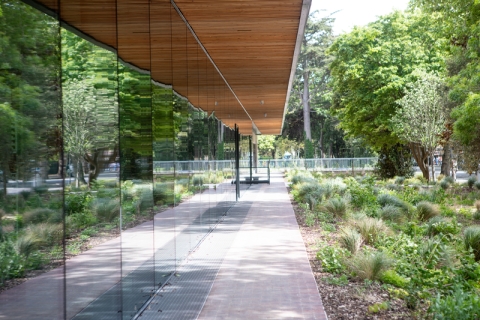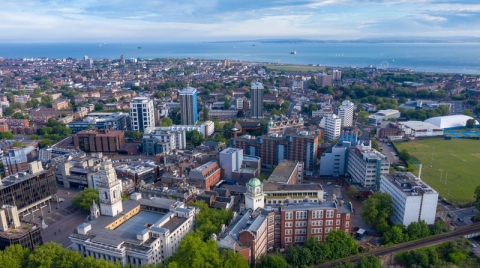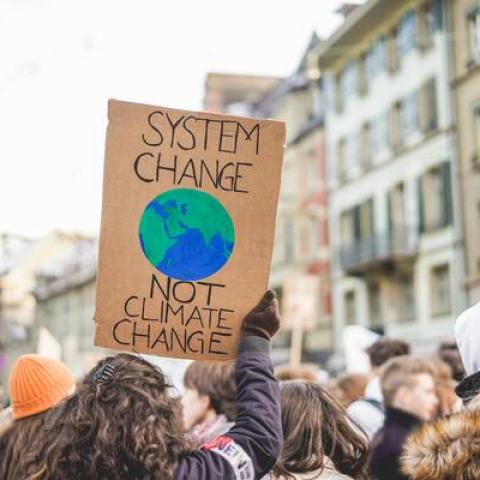

We're committed to becoming climate positive by 2030 — one of the most ambitious environmental targets across the UK Higher Education sector.
We have a vision to be climate-positive by 2030. Ian McCormack, Energy and Environmental Manager in Estates and Campus Services, shares some of the work underway to eliminate plastics, manage waste, support sustainable travel and reduce energy consumption.
Tackling plastic waste
Eliminating single use plastic is a huge challenge but our Catering team has made a great start. They use glass milk bottles, saving nearly 13,000 milk sachets a year, bamboo cutlery, eco-friendly corn starch cups to save around 60,000 plastic cups a year, while encouraging all to use their own reusable cups. Plastic straws have been replaced with straws made from the hollow stems of wheat plants, a harvesting by-product.
Across campus, separate bins have been installed for recycling, food, liquids and batteries. Any non-recyclable items are extracted by our contractor, Suez, sorted and processed via their facility. A recent audit showed that a large proportion of plastic waste is from packaging brought into the University. Recycling bins are good at coping with common plastics but items such as crisp packets, bubble wrap and office stationery require bespoke processes. Steps to set up new waste stations to recycle these plastics are now underway.

Sustainable travel options
A new University Travel Plan is being prepared. A recent staff travel survey showed a 44 per cent decrease in the number of staff driving to work because of changes made last year to the Car Parking Policy. Staff who live within two miles are no longer eligible for car parking permits, resulting in active travel (such as cycling and walking) overtaking solo car use as the most common way staff commute to the University.
Reducing energy consumption and emissions
Carbon emissions continue to be reduced through lower electricity, gas, water and fuel usage across campus. As well, 100 per cent of the University’s electricity is now being regularly provided from UK based renewable sources: solar, wind, hydro and wave. This means reporting zero emissions for electricity under the GHG Protocol Corporate Standards and a match to Renewable Energy Guarantees of Origin (REGOs). Other energy sustainability initiatives include fitting lighting movement sensors and upgrading and closely monitoring heating systems.
Next steps
The University wants and needs to go further. Immediate plans include setting up more waste stations to recycle trickier plastics and supporting staff to cycle by improving bicycle security, and providing more storage and changing facilities. The use of electric vehicles is also supported, along with flexible working guidelines and encouraging alternatives to business travel.
For more information on this work visit our sustainability page.


